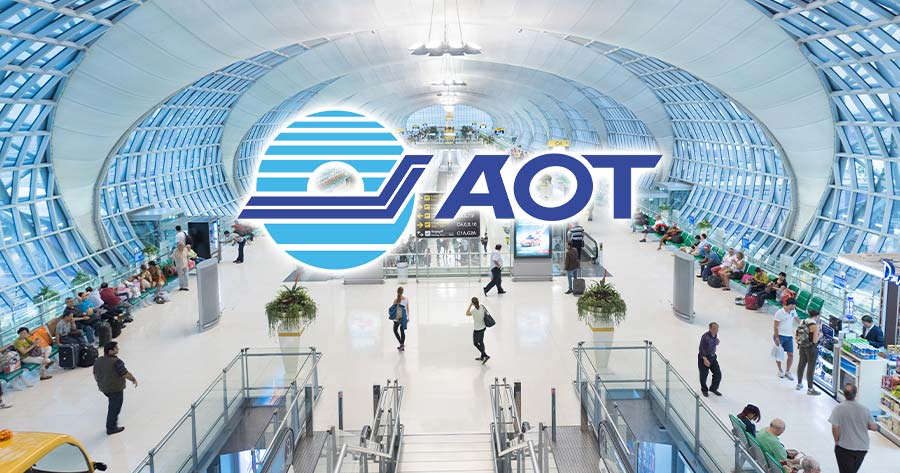Paweena Jariyathitipong, Senior Executive Vice President (Engineering and Construction), as the Acting President of Airports of Thailand Public Company Limited (SET: AOT), revealed to “Kaohoon” that her target is to restore the company’s profits to the pre-COVID-19 level of THB 25 billion within the next 1–2 years.
The company plans to propose to the Civil Aviation Authority of Thailand (CAAT) an adjustment to increase the airport fees for outbound international and domestic passengers, known as Passenger Service Charges (PSC), at all six airports under AOT including: Suvarnabhumi, Don Mueang, Chiang Mai, Hat Yai, Phuket, and Mae Fah Luang.
The increase will initially be more than THB 200 per person. The PSC for outbound international passengers is currently THB 730 per person, and for domestic outbound passengers, it is THB 130 per person.
Previously, AOT planned to adjust the PSC twice this year. The first proposal, which has already been submitted, requested an increase of THB 5 per person. The second proposal was to increase the PSC by an additional amount of over THB 100 per person during October, said Paweena.
However, the first proposal has not been approved yet, as it is pending the appointment of new CAAT members and is currently stuck at the Cabinet. Therefore, the company decided to propose a single increase of over THB 200 per person per month to speed up the process without submitting multiple proposals. This decision was made as AOT is currently shouldering significant losses from the insufficient PSC rates, she continued.
Paweena estimated that for every THB 100 increase in PSC from international outbound passengers, the company’s revenue would increase by THB 3,500 million per year. For every THB 100 increase in PSC from domestic outbound passengers, revenue would increase by THB 2,000 million per year. This totals a revenue increase of THB 5,500 million per year. If the fee is raised by THB 200 per person, the total increase would be THB 11,000 million per year.
At current PSC rates, AOT incurs an operational loss of THB 200 per international passenger and THB 50 per domestic passenger, averaging a loss of THB 125 per person.
The additional revenue will be allocated to “expand airports,” implement advanced technology, and improve facilities to enhance the passenger experience and boost competitiveness with leading global airports.
Regarding the resolution of the duty-free concession contracts at airports under AOT’s responsibility with the King Power Group, a conclusion is expected within October this year.
Paweena also revealed a new investment approach under the “Smart Investment” concept. She stated that there is no reduction in the project budgets, but the investment timelines are being adjusted for optimal outcomes and maximum efficiency.
There are two key projects at Suvarnabhumi Airport (BKK): the East Expansion terminal worth about THB 12,000 million, and the South Terminal valued at approximately THB 120,000 million. Both projects await Cabinet consideration, with the issue resting with the Secretariat of the Cabinet.
The East Expansion project will increase passenger capacity by 15 million annually, with bidding expected to begin in early 2026 and about four years of construction. The South Terminal will accommodate up to 55 million passengers per year under the new master plan, bringing Suvarnabhumi’s total capacity to 120 million passengers per year.
Construction of Lanna Airport (the second Chiang Mai Airport) and Andaman Airport (the second Phuket Airport) are still in preliminary phases, with decisions pending on whether to build new airports or expand the existing ones. The projects are currently at the Pre-Feasibility Study (Pre-FS) stage and have not yet reached Cabinet consideration.
New airport projects take considerable time, especially the crucial land acquisition process—without land, the projects cannot move forward. Therefore, a “Plan B” is being prepared alongside, aiming at expanding the existing Phuket Airport to support future growth.
Paweena added that AOT will push forward with the investment projects under the revised master plan, focusing on ensuring that each investment efficiently and effectively meets future passenger demand and supports the growth of the aviation industry.





